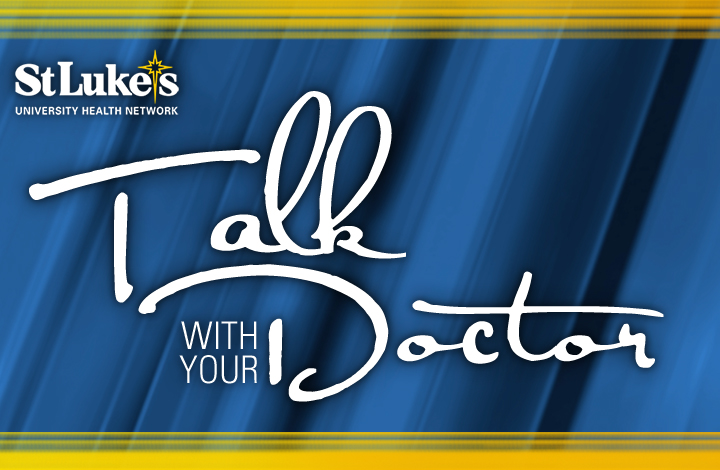Don’t Be SAD… Seasonal Affective Disorder is Treatable
December 29, 2017
Do you find yourself feeling sad now that the days are shorter and you’re spending more time indoors out of the cold?
You could have what is known as seasonal affective disorder or SAD.
“Seasonal affective disorder is a form of depression that people get this time of year,” says Dr. John Brinker, a family medicine and primary care physician at St. Luke’s Family Practice in Stroudsburg. “SAD is more than ‘It’s a rainy day, and I’m not myself,’” Dr. Brinker says.
SAD typically starts in late fall and continues through the winter, Dr. Brinker says. It goes away come spring and summer when the days are longer and warmer, he says.
People can have seasonal depression in the summer, but it is far less common, Dr. Brinker notes.
Dr. Brinker says the symptoms of SAD are the same as depression and can include:
- Loss of interest in things you normally like to do
- Changes in sleep – you may be sleeping more or sleeping less than you need
- Changes in appetite – you may be eating more and gaining weight or eating less and losing weight
- Increase in anxiety – you worry more about things in your life.
- Having difficulty concentrating
- Having less energy and more fatigue
It’s hard to know how many people have SAD because many people don’t seek treatment, Dr. Brinker says. “It could be anywhere from 1 million to 3 million in a particular season,” he says. “It is a fairly common disorder.”
Risk factors for SAD
Anyone can suffer with SAD. SAD has even been reported in children, according to the National Institute of Mental Health. Women are four times as likely to suffer with SAD than men, the NIMH says.
Other risk factors:
Living far away from the equator. More people who live in New England and Alaska suffer from SAD than who live in Florida.
A family history of depression or bipolar disorder. People who suffer from depression or who have bipolar disorder or have a family history of these disorders are at greater risk for SAD, the NIMH says.
If you find that your low mood is interfering with your everyday life, you should seek medical attention, Dr. Brinker says. Most people who have SAD start with their primary care physician. “You should talk to your doctor if you feel depressed during the fall and winter months and don’t want to feel that way again,” he says.
Treatment for SAD can include:
- Medication. Selective Serotonin Reuptake Inhibitors (SSRIs), common antidepressants, are used to treat SAD.
- Light therapy. Light therapy provides artificial light to replace sunshine.
- Psychotherapy. Cognitive behavioral therapy has proven to help people with SAD. CBT is learning how to replace negative thoughts with positive ones. People also are encouraged to find activities that they can enjoy in winter.
People with SAD have less vitamin D in their bloodstream. But it is not clear whether vitamin D supplements can help, according to the NIMH.
“Treatments are customized to patients’ wants and desired outcomes,” Dr. Brinker says. Some people prefer medication and some people prefer other treatments, he says.
People who know they have SAD should seek treatment before their yearly symptoms arrive, Dr. Brinker says.
Media Contact:
Sam Kennedy, Corporate Communications Director, 484-526-4134, samuel.kennedy@sluhn.org
About St. Luke’s
Founded in 1872, St. Luke’s University Health Network (SLUHN) is a fully integrated, regional, non-profit network providing services at seven hospitals and more than 270 outpatient sites in the greater Lehigh Valley. The network’s service area includes 10 counties: Lehigh, Northampton, Carbon, Schuylkill, Bucks, Montgomery, Berks and Monroe counties in Pennsylvania and Warren and Hunterdon counties in New Jersey. In partnership with Temple University, St. Luke’s created the region’s first and only regional medical school campus. Dedicated to advancing health education, St. Luke’s operates the nation’s oldest School of Nursing and 23 graduate medical educational programs and is considered a major teaching hospital – the only one in its region. Repeatedly, including 2017, St. Luke’s earned Truven’s 100 Top Major Teaching Hospital and 50 Top Cardiovascular Program designations, in addition to other honors for clinical excellence. St. Luke’s is a multi-year recipient of the Most Wired award recognizing the breadth of St. Luke’s information technology applications such as electronic medical records, telehealth, online scheduling and pricing information. St. Luke’s is also recognized as one of the state’s lowest cost providers.
Read More NewsLatest News

October 31, 2024
SLUHN Surgeon Recognized among Top-Cited Scientists

October 30, 2024
New Multispecialty Medical Office Building on Walbert Ave

October 30, 2024
